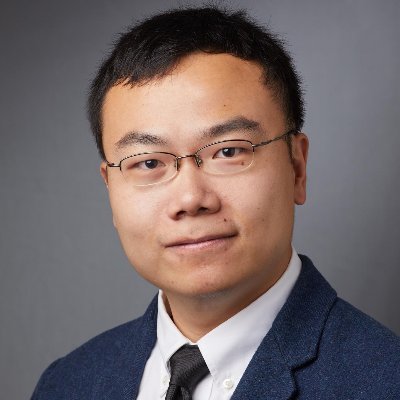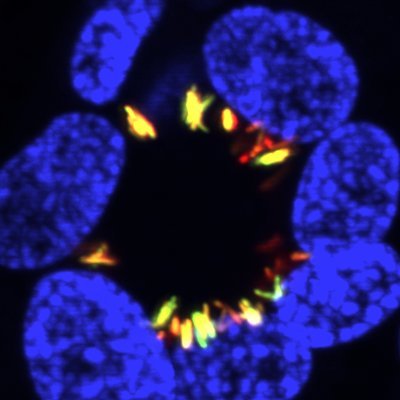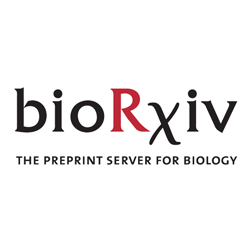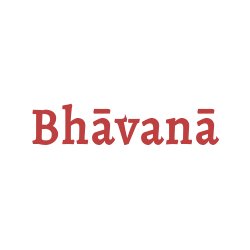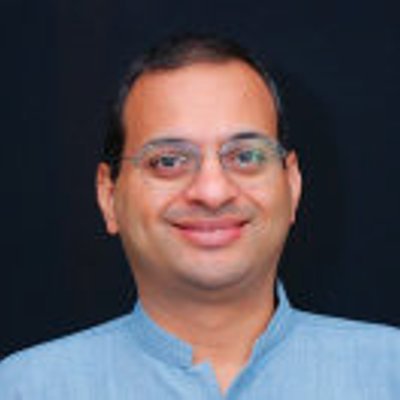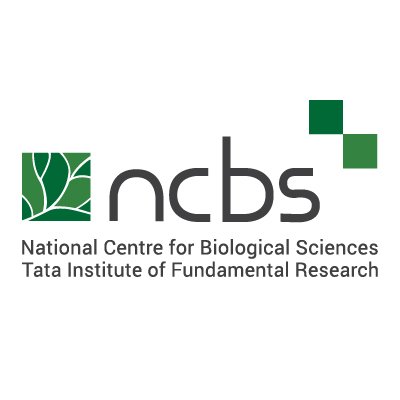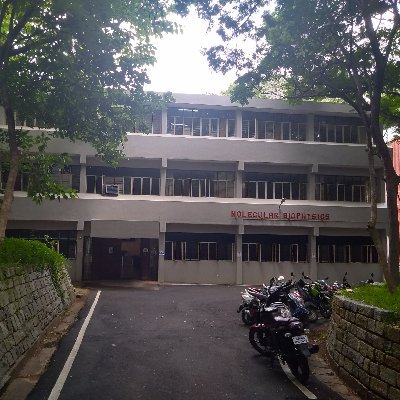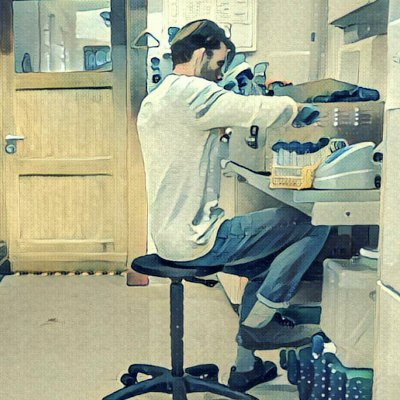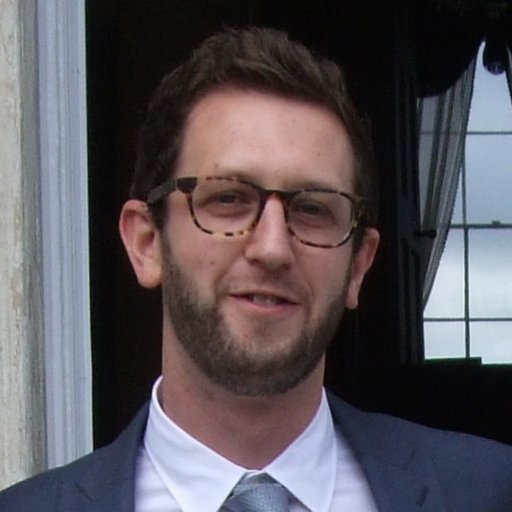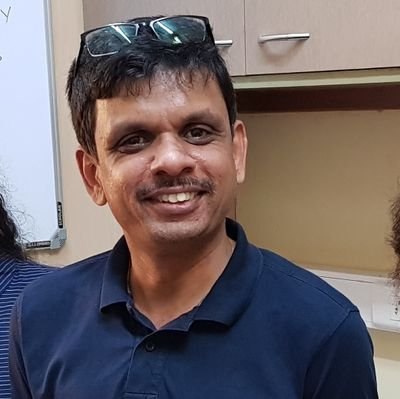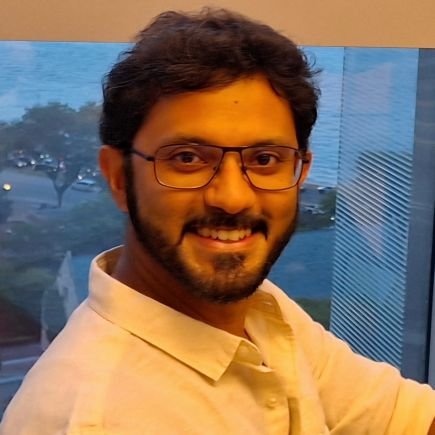
Shaon Chakrabarti
@shaon_chak
Followers
1K
Following
821
Media
28
Statuses
464
Assistant professor @NCBStheory in @NCBS_Bangalore. Having fun combining microscopy with theory to understand and (eventually) control cellular proliferation.
Bangalore, India
Joined October 2017
Our paper, now out in @PLOSCompBiol, shows that the widely held assumption in #cancer - increasing drug changes cellular birth/death rates, may not be true! Important implications for timing cell fate decisions and interpreting barcode diversity changes. https://t.co/RbjkLz3eDl
What can #singlecell lineage correlations teach us about drug tolerance, timing of #persisters, and how (not) to analyse #barcoding data? A lot that is counterintuitive! Excited about our first #cancer manuscript from @NCBS_Bangalore @NCBStheory
https://t.co/upbuIg2S2X (1/6)
1
7
26
Our RAEFISH spatial transcriptomics technology is now published in Cell @CellCellPress! RAEFISH enables sequencing-free whole genome spatial transcriptomics at single molecule resolution. This work represents the first time that transcripts from more than 23,000 genes were
14
113
397
Preprint alert! New work from our lab on the origins of intracellular pathogen phenotypic heterogeneity. We show that : Cell cycle-dependent variation in endocytosis drives phenotypic diversity in M. tb https://t.co/JHA1zGZCBb Excellent collaboration with @shaon_chak
biorxiv.org
Cell-to-cell heterogeneity is a hallmark of biology, yet how host variability shapes intracellular pathogen phenotypes is unclear. Using single cell approaches and redox-sensitive Mycobacterium...
0
3
6
With P. P. Divakaran’s passing, we have lost a scholar of ancient Indian mathematics, a physicist, a gregarious colleague and a friend to many across science and mathematics. An academic of profound and rare intellectual breadth, he started as a theoretical physicist—where he
We are deeply saddened to hear of the passing away of Prof. P.P. Divakaran, a distinguished academician and scholar in the field of the mathematical tradition of India. Prof. Divakaran wrote for Bhavana on the Bakhshali manuscript carbon dating. https://t.co/2dic3EFuwG (1/2)
3
70
240
A new paper on an issue that has been discussed for more than a century -- how can fundamental biophysical constraints on nutrient transport be overcome to solve one of the most significant challenges associated with the evolution of multicellularity? https://t.co/WUKBoXxUsM
3
32
175
Applications are invited for the TIFR Interdisciplinary Programme in the Physics of Life (TIFR- PoL) through GATE / CSIR - UGC NET (JRF-eligible) stream. Application deadline: 31 May 2025 Contact: pol@icts.res.in To know more: https://t.co/mZzwNPfEpg
#sciences #admissionopen
0
9
25
#ResearchExplained! @AnjoomN & team from @shaon_chak 's lab at NCBS explored a new strategy to detect the internal clock’s control over the cell cycle. Read Here: https://t.co/6AueZvBHCD ✏️ Christeen Paulson
1
5
23
We are organizing a 2-day "AI in Biophysics" symposium from 28-29 April. We bring together leading experts to facilitate interdisciplinary and lively discussions. Website: https://t.co/o5TMSAq9HQ Poster abstract deadline: April 18 Registration deadline: April 24
1
23
57
Our latest work is out in @CommsBio. Led by @NicaGutu & Hitoshi Ishikuma, we study how circadian rhythms shape time-of-day drug sensitivity in human cells 🕒💊. Toward time-based cancer therapy. Supported by @medicine_e, @BMBF_Bund @ChariteBerlin 👉 https://t.co/OaX1oCEeRH
0
4
10
Had a lovely time in the school, a week of all things #chronobiology. @EMBO @IBRO @jncasr @NCBS_Bangalore
0
2
30
Are you interested in doing a multidisciplinary computational/wet lab #PhD on mechanisms of glioblastoma cell state plasticity with @smarino0111 and me @RadNetCRUKCoL @UCLmedphys @blizard_inst? Find out more and apply here: https://t.co/u5vB3gIpj3
#CancerResearch
0
9
23
The India-EMBO Lecture course on biological rhythms is almost here! Many thanks to @EMBO @IBROorg @ANRFIndia and #InSC for funding. Looking forward to ten days of classes, wet-lab sessions and talks related to all things #Chronobiology! @SheebaVasu
0
11
36
Mitochondria Time Your Exercise Capacity Did you know your workout efficiency changes with the clock? 🏃♀️ Our research uncovers how mitochondrial energetics & SIRT4 regulate exercise performance during the day! 🌞🌙 Find out more: https://t.co/jSJrvMkZgc
@TIFRScience @TIFRH_buzz
faseb.onlinelibrary.wiley.com
Distinct metabolic and energetic signatures associated with time-of-day-dependent exercise. Skeletal muscle mitochondrial functions display diurnal rhythmicity. Loss of Sirtuin4 abrogates time-of-t...
11
26
160
This UMAP plot was generated from data simulated without inherent clusters, meaning the observed clusters are artifacts. It highlights how default Seurat clustering and UMAP settings can sometimes produce misleading patterns in data visualization.
13
109
576
Our method opens up the possibility of discovering drug-tolerance related genes from single clinical samples, not just limited to settings where genetic engineering is feasible. Incredible work by @suvranil_1, and a really fun and enjoyable collaboration with #Archishman.
0
0
8
We demonstrate that memory genes previously discovered from many independent samples of a melanoma cell line (Memory-Seq), are recovered using Power-Seek, but with just one scRNA-seq dataset. Excitingly, we also demonstrate its applicability in human breast cancer tissue.
1
0
7
Using this new conceptual framework we developed a simple and easy to use algorithm, 'Power-Seek' (all puns intended). This detects memory genes using variations in the power-law exponent upon removing genes one at a time from a single scRNA-seq dataset.
1
0
4
Single samples pose intriguing difficulties, since cell-cell correlations get mixed up with gene-level variations, precluding use of methods like PCA. This took us into a deep dive in Random Matrix Theory, from a beautiful paper on protein evolution:
pnas.org
Covariance analysis of protein sequence alignments uses coevolving pairs of sequence positions to predict features of protein structure and functio...
1
0
3
While seemingly impossible, this can indeed be done due to a beautiful underlying theoretical result that we show: memory genes, which give rise to lineage correlations, generate detectable Power-Laws in the eigenspectrum of the cell-covariance matrix of a scRNA-seq dataset.
1
0
7
However, these methods are conceptually based on variants of the classic Luria-Delbruck framework, requiring either many samples or lineage information from barcodes to identify memory genes. We asked whether *all* these requirements can be done away with using a new approach?
1
0
3
